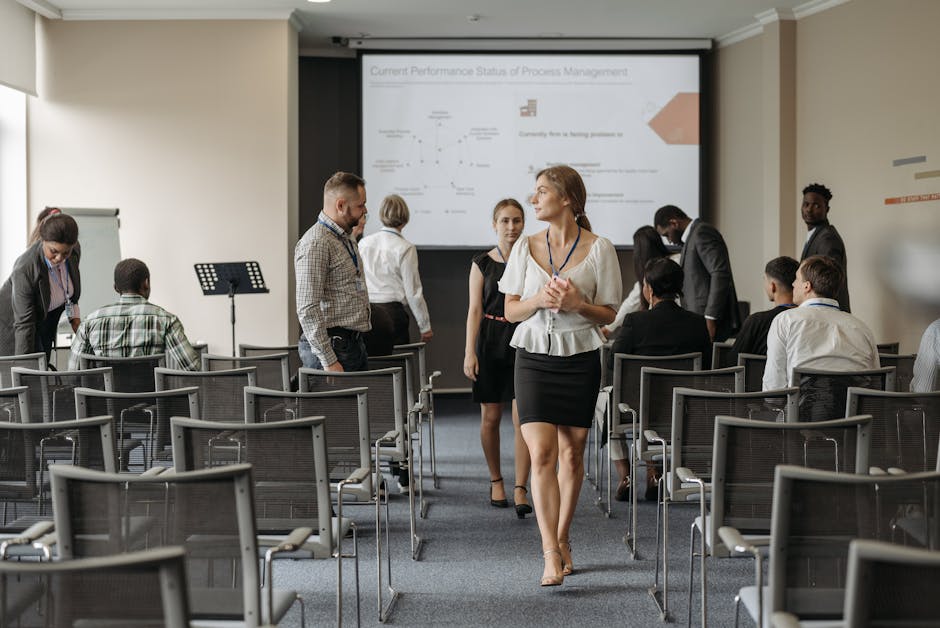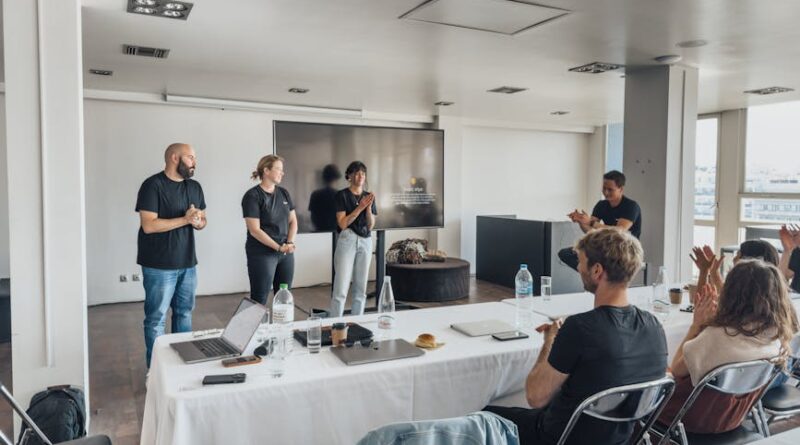Unlocking Success: Effective Event Planning for Fundraisers
Are you looking to make a difference in your community? Do you have a cause that is near and dear to your heart but need the resources to support it? Event planning for fundraisers can be a powerful tool to raise awareness, gather support, and generate much-needed funds for your cause. However, the success of a fundraising event isn’t just about setting a date and sending out invitations. It requires meticulous planning, strategic thinking, and a deep understanding of your audience. In this comprehensive guide, we will delve into the world of effective event planning for fundraisers, exploring key strategies, best practices, and innovative ideas to help you achieve your fundraising goals.
The Power of Effective Event Planning

Effective event planning is the cornerstone of a successful fundraiser. It involves careful coordination of logistics, marketing, and communication to create a memorable and impactful experience for your attendees. From selecting the right venue to designing engaging activities, every aspect of event planning plays a crucial role in maximizing your fundraising potential.
Setting Clear Goals and Objectives

Before diving into the details of event planning, it is essential to establish clear goals and objectives for your fundraiser. What do you hope to achieve through this event? Are you looking to raise a specific amount of money, increase awareness about your cause, or engage with potential donors? By defining your goals upfront, you can tailor your event planning efforts to align with your overarching objectives.
Choosing the Right Type of Fundraising Event

There are various types of fundraising events, ranging from galas and auctions to charity runs and online campaigns. When selecting the type of event for your fundraiser, consider factors such as your target audience, budget, and the nature of your cause. For example, a formal gala might be more suitable for a high-end donor base, while a community-based event like a fun run could appeal to a broader audience.
Engaging Your Audience

One of the key elements of effective event planning is engaging your audience from start to finish. This can be achieved through creative marketing campaigns, interactive activities, and compelling storytelling. By connecting with your attendees on an emotional level and making them feel invested in your cause, you can increase participation and generosity during the event.
Securing Sponsorships and Partnerships
Sponsorships and partnerships can play a significant role in the success of your fundraising event. By collaborating with businesses, organizations, and individuals who share your values, you can access additional resources, reach a wider audience, and enhance the overall experience for your attendees. When seeking sponsorships, be sure to highlight the mutual benefits of the partnership and tailor your proposals to address the specific needs of potential sponsors.
Creating a Comprehensive Budget
A well-defined budget is essential for effective event planning. It helps you allocate resources wisely, track expenses, and ensure that you stay within your financial limits. When creating a budget for your fundraiser, consider all potential costs, including venue rental, catering, marketing materials, and staff wages. Be sure to factor in contingency funds to account for unexpected expenses that may arise during the planning process.
Utilizing Technology and Social Media
In today’s digital age, technology and social media can be powerful tools for promoting your fundraising event and engaging with your audience. From creating online ticketing platforms to live-streaming the event on social media, there are countless ways to leverage technology to enhance the reach and impact of your fundraiser. By harnessing the power of digital tools, you can connect with supporters, gather donations, and raise awareness more effectively than ever before.
Measuring Success and Impact
Once your fundraising event is over, it is crucial to evaluate its success and impact. This can be done by analyzing key metrics such as the amount of funds raised, the number of attendees, and the level of engagement generated. By gathering feedback from participants, sponsors, and volunteers, you can gain valuable insights into what worked well and areas for improvement in future events. Remember, measuring success is not just about the bottom line; it is also about the lasting impact your fundraiser has on your cause and community.
Common Misconceptions
One common misconception about event planning for fundraisers is that it is only about raising money. While fundraising is a key objective, successful events also focus on building relationships, raising awareness, and creating a sense of community around a shared cause. By shifting the focus from transactions to connections, you can create a more meaningful and sustainable impact through your fundraising events.
Conclusion
To wrap things up, effective event planning for fundraisers is a multifaceted endeavor that requires strategic thinking, creativity, and a deep understanding of your audience. By setting clear goals, engaging your audience, securing sponsorships, creating a comprehensive budget, and leveraging technology, you can maximize the impact of your fundraising events and support your cause in meaningful ways. Whether you are planning a small community event or a large-scale gala, the key to success lies in meticulous planning, thoughtful execution, and a genuine passion for making a difference.
Remember, effective event planning is not just about organizing logistics; it is about creating an experience that inspires, educates, and motivates your audience to support your cause. By approaching event planning with creativity, innovation, and a commitment to excellence, you can unlock the full potential of your fundraising efforts and make a lasting impact on the world around you.




